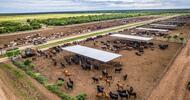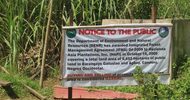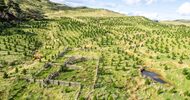En este punto nos encontramos ahora, cuando el ya bien conocido y denunciado fenómeno de acaparamiento de tierras está encontrando en el Banco Mundial, la Organización de Naciones Unidas para la Agricultura y la Alimentación (FAO) y en algunas ONG una inverosímil legitimidad bajo el eufemismo de inversión agrícola responsable.
- La Jornada
-
15 October 2013
In the occasion of Committe on World Food Security session in Rome Glopolis is publishing a briefing on responsible agricultural investment which is one of the main issues discussing during this forum.
Siete de los 15 países en los que más está creciendo la producción agrícola son africanos. Los expertos ven un gran potencial, pero también importantes riesgos
Industrialised countries should do more to persuade companies that investing in, and working with, farmers makes more business sense than buying their land, says FAO senior economist
- Guardian
-
20 September 2013
The People's Coalition on Food Sovereignty recently released its critique on the responsible agricultural investment guideline calling it essentially the same as the World Bank's Principle on Responsible Agricultural Investment.
The UN passed a series of voluntary guidelines to prevent land grabbing and protect small-scale farmer's rights a year ago. But so far the rules haven't had much impact on foreign investors buying up land.
Groups strongly reject and condemn the G8’s proposed transparency initiative.
Avanza en la región la compra de tierras por parte de empresas; en Uruguay, anteproyectos para frenar extranjerización están en la órbita del Poder Ejecutivo.
- La Diaria
-
21 February 2013
De acuerdo con Perspectivas, la concentración y extranjerización de la tierra continuará en América Latina en los próximos años, aunque también se generan legislaciones e iniciativas en algunos países por regular la propiedad extranjera de la tierra.
- Nicaragua Hoy
-
13 February 2013
This article calls into question the depth and effectiveness of a regulatory approach arguing that problems underlying large-scale land deals are so deep constituting socio-institutional problems of power asymmetry, exclusion and invisiblization, than just investment externalities or regulatory challenges.
The controversy regarding India’s permission to allow foreign direct investment in multi-brand retail and growing “land grab” in Africa by multinational corporations are being closely watched globally by agriculture experts, researchers and donors.
- The Hindu
-
19 December 2012
Controversial farmland deals in developing countries can have a negative impact on the people who live on the land, according to a new U.N. report.














